
Amitav Ghosh is an Indian writer. He won the 54th Jnanpith award in 2018, India's highest literary honor. Ghosh's ambitious novels use complex narrative strategies to probe the nature of national and personal identity, particularly of the people of India and South Asia. He has written historical fiction and also written non-fiction works discussing topics such as colonialism and climate change.

Udupi Rajagopalacharya Ananthamurthy was an Indian contemporary writer and critic in the Kannada language. He was born in Thirtahalli Taluk and is considered one of the pioneers of the Navya movement. In 1994, he became the sixth Kannada writer to be honored with the Jnanpith Award, the highest literary honour conferred in India. In 1998, he received the Padma Bhushan award from the Government of India. He was the vice-chancellor of Mahatma Gandhi University in Kerala during the late 1980s. He was one of the finalists of Man Booker International Prize for the year 2013. He remained a fervent critic of nationalistic political parties until his death from kidney failure and cardiac arrest on 22 August 2014.

Sarat Chandra Chattopadhyay, was a Bengali novelist and short story writer of the early 20th century. He generally wrote about the lives of Bengali family and society in cities and villages. However, his keen powers of observation, great sympathy for fellow human beings, a deep understanding of human psychology, an easy and natural writing style, and freedom from political biases and social prejudices enable his writing to transcend barriers and appeal to all Indians. He remains the most popular, translated, and adapted Indian author of all time.

Meghnad Jagdishchandra Desai, Baron Desai is an Indian-born naturalised British economist and former Labour politician. He stood unsuccessfully for the position of Lord Speaker in the House of Lords in 2011. He has been awarded the Padma Bhushan, the third highest civilian award in the Republic of India, in 2008. He is a Professor Emeritus of the London School of Economics.
Indian English literature (IEL), also referred to as Indian Writing in English (IWE), is the body of work by writers in India who write in the English language but whose native or co-native language could be one of the numerous languages of India. Its early history began with the works of Henry Louis Vivian Derozio and Michael Madhusudan Dutt followed by Rabindranath Tagore and Sri Aurobindo. R. K. Narayan, Mulk Raj Anand and Raja Rao contributed to the growth and popularity of Indian English fiction in the 1930s. It is also associated, in some cases, with the works of members of the Indian diaspora who subsequently compose works in English.
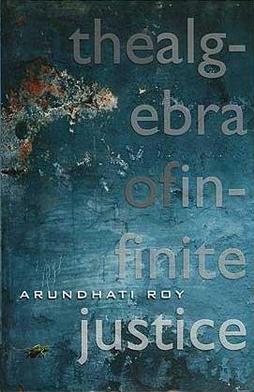
The Algebra of Infinite Justice (2001) is a collection of essays written by Booker Prize winner Arundhati Roy. The book discusses a wide range of issues including political euphoria in India over its successful nuclear bomb tests, the effect of public works projects on the environment, the influence of foreign multinational companies on policy in poorer countries, and the "war on terror". Some of the essays in the collection were republished later, along with later writing, in her book My Seditious Heart.

Parva (Epoch) is a novel written by S. L. Bhyrappa in the Kannada language. It is a retelling of the Sanskrit epic Mahabharata, narrated through the personal reflections of the principal characters. The novel is widely acclaimed as a modern classic. Parva is among Bhyrappa's most widely debated and popular works and is considered by many to be his greatest.
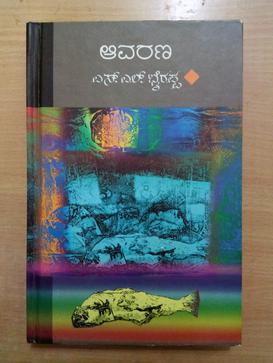
Aavarana is a 2007 Kannada novel by novelist S. L. Bhyrappa. Aavarana means enveloping or covering something. This novel deals with the historical character Timurid Emperor Aurangazeb. Aavarana was sold out even before its release in February 2007. The novel went on to create a record in the Indian literary world by witnessing 10 reprints within five months of its release.
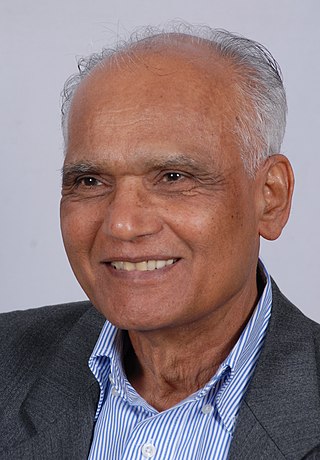
Santeshivara Lingannaiah Bhyrappa is an Indian novelist, philosopher and screenwriter who writes in Kannada. His work is popular in the state of Karnataka and he is widely regarded as one of modern India's popular novelists. His novels are unique in terms of theme, structure, and characterization. He has been among the top-selling authors in the Kannada language and his books have been translated into Hindi and Marathi which have also been bestsellers.

Matadana(meaning: voting) is a 1965 novel written by the famous Kannada writer, philosopher, thinker S L Bhyrappa. An award winning Kannada movie Mathadana based on this novel, which was directed by T N Seetharam secured 'Best Regional Film' award at 47th National Film Awards. Matadana reveals the caste based politics and other dynamics that grip the democratic institution of ballot box in India.
Yajnaseni: the story of Draupadi is a 1984 Odia language novel by Pratibha Ray. The story revolves around Draupadi from the famous epic Mahabharatha. The word Yajnaseni means a woman born out of fire. The book has been translated into various languages, including English, Hindi, Malayalam, Kannada, Marathi, Assamese, Bengali, Nepali and Hungarian.
Kesavan's Lamentations is a 1999 Malayalam novel written by M. Mukundan. The novel tells the story of a writer Kesavan who writes a novel on a child named Appukkuttan who grows under the influence of E. M. S. Namboodiripad.
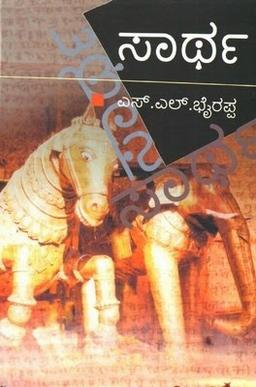
Saartha is an Indian novel written in Kannada language by S.L. Bhyrappa. Through a caravan, the book explores the whole of 8th century India, covering the political, economical, artistic and spiritual life of the country. It uses some historical personalities like Adi Shankaracharya, Maṇḍana Miśra, Ubhaya Bharati and Kumārila Bhaṭṭa and institutions like Nalanda. Its Sanskrit translation was received by Sanskrit scholars like a work originally written in the language. It has also been translated into Hindi and English, published by Oxford University Press, Chennai.
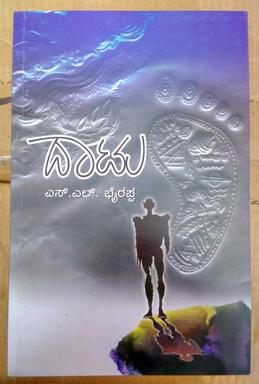
Daatu is a novel by Kannada writer S L Bhyrappa for which he was awarded the Sahitya Akademi Award for the year 1975. The Book has story which goes through the complex caste system that is deep rooted into Indian society demonstrated through the characters. This book has been translated to 14 major Indian Languages. The novel name indicated the crossing over the boundaries of castes and colors.

Anchu is a 1990 Kannada novel by novelist S.L. Bhyrappa. Anchu means edge or boundary. This novel deals with two main characters: one is an educated lady who is deceived in life, and another is an enthusiastic, professionally educated man. The novel has the love story between these two characters and how the lady shows all the anger and frustration on the man who loves her honestly. The novel focus on inner details of the psychological and temperamental variation of the characters without perceivable external events and actions.

Karanam Pavan Prasad is an Indian author, novelist and playwright in Kannada language. He gained notability with his first novel Karma (ಕರ್ಮ). His second novel was Nunni.
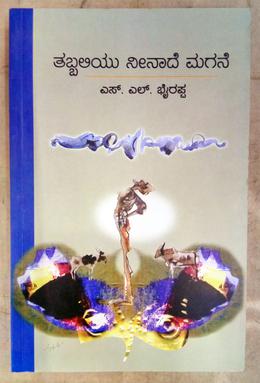
Tabbaliyu Neenade Magane(meaning: You've become orphan, son) is a novel written by novelist S.L. Bhyrappa. This book is about a conflict of a culture with modern views of an educated person in a village of India. The author introduced the characters and developed them throughout the book, representing different views and fighting for moral truth and scientific truths. This book is suitable for people who want to know about village life and background of the cow as a God in India.
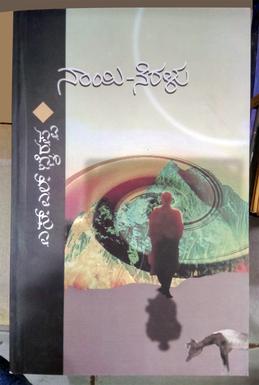
Naayi Neralu(meaning: Shadow of the Dog) is a novel written by S.L. Bhyrappa, which was first published on 1968. As of May 2018, it had 17 reprints and has been translated into Hindi and Gujarati languages. Based on the novel, a movie Naayi Neralu, in Kannada language was released in 2006, directed by Girish Kasaravalli.
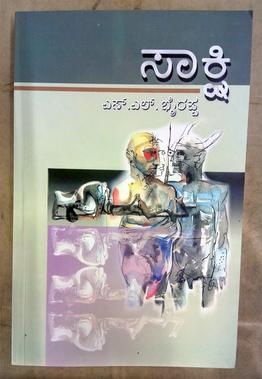
Sakshi(meaning: The witness) is a novel written by S.L. Bhyrappa, which was first published in 1986. As of May 2018, it had 9 reprints and has been translated into Hindi and English languages. The book has been translated into English by Niyogi Books

Bhitti is the autobiography of kannada novelist S.L. Bhyrappa. First published in 1996, the book had 11 reprints as of May, 2018 and has been translated to Hindi, Marathi and English languages.

















